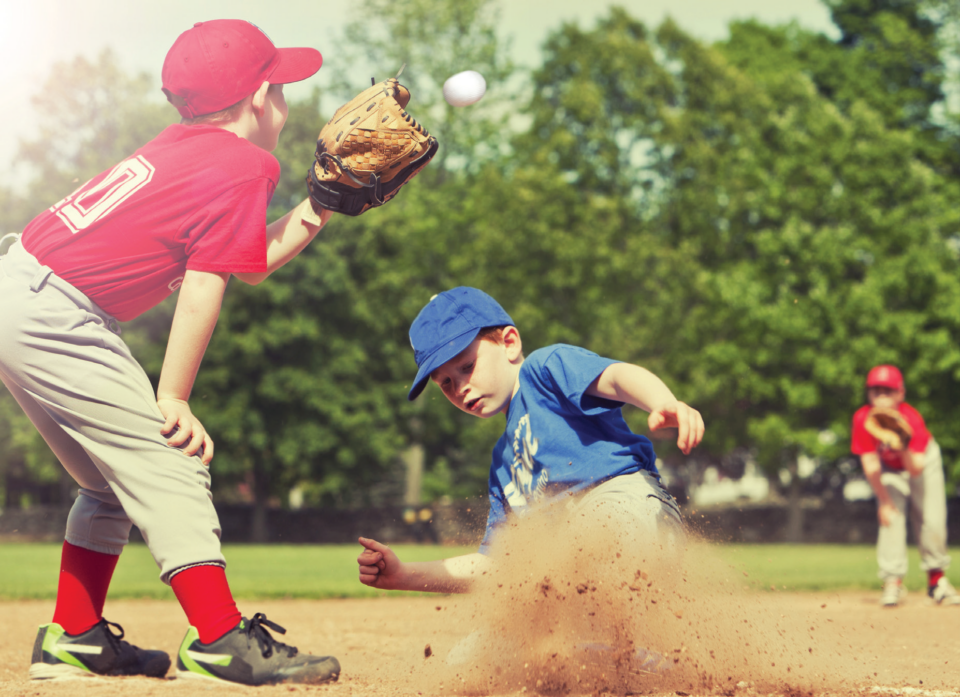Prepping kids for sports takes some physical prep, but when it comes to sports safety, mental preparation is needed, too. Take these things into consideration before signing up your child.
Reece O’Hara, department leader of the Ninja and Parkour program at Kids First Sports Center, says one great way to help your child prepare to play a sport is to have a conversation with the coaches and other parents on the team.
“Parents, coaches and athletes with previous knowledge in a sport can help with overall physical and mental preparation,” O’Hara says. Keep in mind that little ones younger than 5 years old should only be playing for fun. And while physical preparation is important, mental preparation is often overlooked, O’Hara says.
“Preparing kids to set goals, face difficulty and overcome challenges can actually go quite a bit of way in preventing injuries,” she says.
Steer Clear of Injuries
Too often kids are injured when they are distracted picking dandelions or kicking the dirt in the ball field. Although it is quite amusing and adorable, many injuries occur because of little athletes not being focused on the game and their surroundings.
“Most of the coaches I speak with tend to have athletes who get injured on ‘the easy things’ or things they should’ve been able to do in their sleep,” O’Hara explains.
Kids just don’t have the attention span like adults do, says O’Hara. One way to help your kid to stay focused and motivated is by allowing him to make his own decisions. You can also help by giving him simple praises for a job well done (ex. buy him a new pair of shoes); attending as many games as possible; working outside of practice; and asking the right questions that show you are interested in what he is doing such as: How did practice go? Or, how did you feel about your game tonight?
Tips for Preventing Sports Injuries
Follow these tips to keep your athlete safe during practices and games.
• Make sure your child has an updated sports’ physical.
• Talk with your child’s coach about medical and emergency needs, anything from equipment to inhalers.
• Talk about following the rules (wearing appropriate gear; following directions) and about having good sportsmanship often.
• Make sure your child’s equipment is up to date and that it meets national standards.
• Make sure the playing area is deemed safe.
• Be certain he’s getting enough rest, eating right and hydrating often.
• If your child is young, stick around at practices to be sure he is being coached with safety in mind.
SOURCES: cdc.gov and nationwidechildrens.org.





